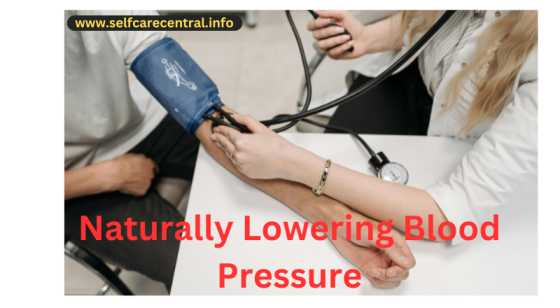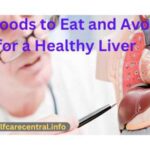1. Get Moving Regularly
Regular physical activity is great for your heart and can help keep your blood pressure under control. Let’s look at some good ways to stay active!
1.1. Heart-healthy cardio activities
Cardio exercises are really good for your heart. Things like walking fast, jogging, swimming, or bike riding can make a big difference. I remember when I first started taking daily walks – it felt so nice to be outside and move around. Even just 30 minutes a day can help bring down your blood pressure.
1.2. Building strength and its effect on blood pressure
Don’t forget about strength training! Using weights or resistance bands can help build muscle and improve your overall health. When I added some light weight exercises to my routine, I noticed I felt stronger and had more energy.
1.3. Suggested exercise plans for managing high blood pressure
A good exercise plan might include:
- 30 minutes of moderate cardio, 5 days a week
- Strength training exercises, 2-3 times a week
- Stretching or yoga for flexibility
Remember, always check with your doctor before starting a new exercise plan, especially if you have high blood pressure.
Read more: Effective Home Treatments for Dry Cough
2. Try the DASH Diet
The DASH (Dietary Approaches to Stop Hypertension) diet is a good way to eat for better heart health. Let’s take a closer look at what it involves.
2.1. Main parts of the DASH eating plan
The DASH diet focuses on:
- Fruits and vegetables
- Whole grains
- Lean proteins
- Low-fat dairy
2.2. Foods to eat and avoid
Eat these foods:
- Colorful vegetables like spinach, carrots, and broccoli
- Fruits such as bananas, apples, and berries
- Whole grain bread and pasta
- Fish, chicken, and beans
Try to avoid or eat less of:
- Processed foods
- Sugary drinks
- Red meat
- Foods high in saturated fats
2.3. Tips for planning meals on the DASH diet
Planning your meals can make following the DASH diet easier. I like to prepare my veggies for the week on Sundays. It makes putting together a healthy meal much quicker during busy weekdays.
Read more:7 Natural Sinus Remedies That Actually Work
3. Cut Down on Salt
Eating less salt can make a big difference in managing high blood pressure. Let’s explore why and how.
3.1. Understanding how salt affects high blood pressure
Salt makes your body hold onto extra water, which puts more pressure on your blood vessels. This can lead to higher blood pressure over time.
3.2. Easy ways to eat less salt
Here are some simple ways to reduce salt:
- Use herbs and spices instead of salt for flavor
- Choose fresh or frozen vegetables over canned ones
- Rinse canned foods to remove extra salt
3.3. Looking for hidden salt on food labels
It’s important to check food labels for salt content. You might be surprised how much salt is in some foods! I was shocked when I realized how much salt was in my favorite canned soup.
4. Manage Stress
Stress can really affect your blood pressure. Let’s look at some ways to keep stress in check.
4.1. Meditation and mindfulness
Taking a few minutes each day to sit quietly and focus on your breath can be really helpful. I started with just 5 minutes a day, and it made a big difference in how I felt.
4.2. Deep breathing exercises to relax
Try this simple breathing exercise:
- Breathe in slowly through your nose for 4 counts
- Hold your breath for 4 counts
- Breathe out slowly through your mouth for 4 counts
- Do this 5-10 times
4.3. Yoga and how it affects blood pressure
Yoga combines physical poses, breathing techniques, and meditation. It’s a great way to reduce stress and may help lower blood pressure. I enjoy doing a gentle yoga routine before bed to help me relax.
5. Eat Foods Rich in Potassium
Potassium is an important mineral for heart health. Let’s see how it can help with blood pressure.
5.1. How potassium affects blood pressure
Potassium helps balance out the effects of salt in your body. It can help your kidneys get rid of extra salt through your urine.
5.2. Top foods high in potassium to add to your diet
Some great sources of potassium include:
- Bananas
- Sweet potatoes
- Spinach
- Beans
- Avocados
5.3. Balancing potassium with medication
If you’re taking certain blood pressure medications, you might need to be careful about how much potassium you eat. Always check with your doctor about the right amount for you.
6. Drink Less Alcohol
Drinking too much alcohol can raise your blood pressure. Let’s look at how to approach this.
6.1. How alcohol relates to high blood pressure
Regular heavy drinking can lead to high blood pressure over time. It can also make blood pressure medications less effective.
6.2. Guidelines for drinking in moderation
If you choose to drink, try to stick to:
- Up to one drink a day for women
- Up to two drinks a day for men
6.3. Other drinks instead of alcohol
There are lots of tasty alternatives to alcohol. I enjoy sparkling water with a splash of fruit juice, or herbal tea in the evenings.
7. Herbal Remedies and Supplements
Some herbs and supplements might help with blood pressure. Let’s explore a few options.
7.1. Garlic and its possible effects on lowering blood pressure
Garlic has been used for centuries for its health benefits. Some studies suggest it might help lower blood pressure a little.
7.2. Omega-3 fatty acids and heart health
Omega-3 fatty acids, found in fish oil and certain plant oils, may help reduce inflammation and lower blood pressure.
7.3. Other herbs and supplements with promising research
Other potentially helpful supplements include:
- Hibiscus tea
- Beetroot juice
- Coenzyme Q10
Always talk to your doctor before starting any new supplement, especially if you’re taking medications.
8. Putting It All Together: Adding Natural Remedies to Your Daily Life
Adding these natural remedies to your daily life can be a great way to support your heart health. Remember, it’s about making small, consistent changes over time. Be patient with yourself and celebrate the small wins along the way!
9. Common Questions
9.1. How long before I see results from these natural remedies?
It’s different for everyone, but you might start to see changes in a few weeks to a few months. The key is to keep at it!
9.2. Can natural remedies replace my blood pressure medicine?
While natural remedies can be helpful, they shouldn’t replace prescribed medications without your doctor saying it’s okay. Always work with your doctor to manage your blood pressure.
9.3. Are there any risks with these natural approaches?
Most of these natural approaches are safe for most people. However, everyone is different. It’s always best to check with your doctor, especially if you have any health conditions or are taking medications.


